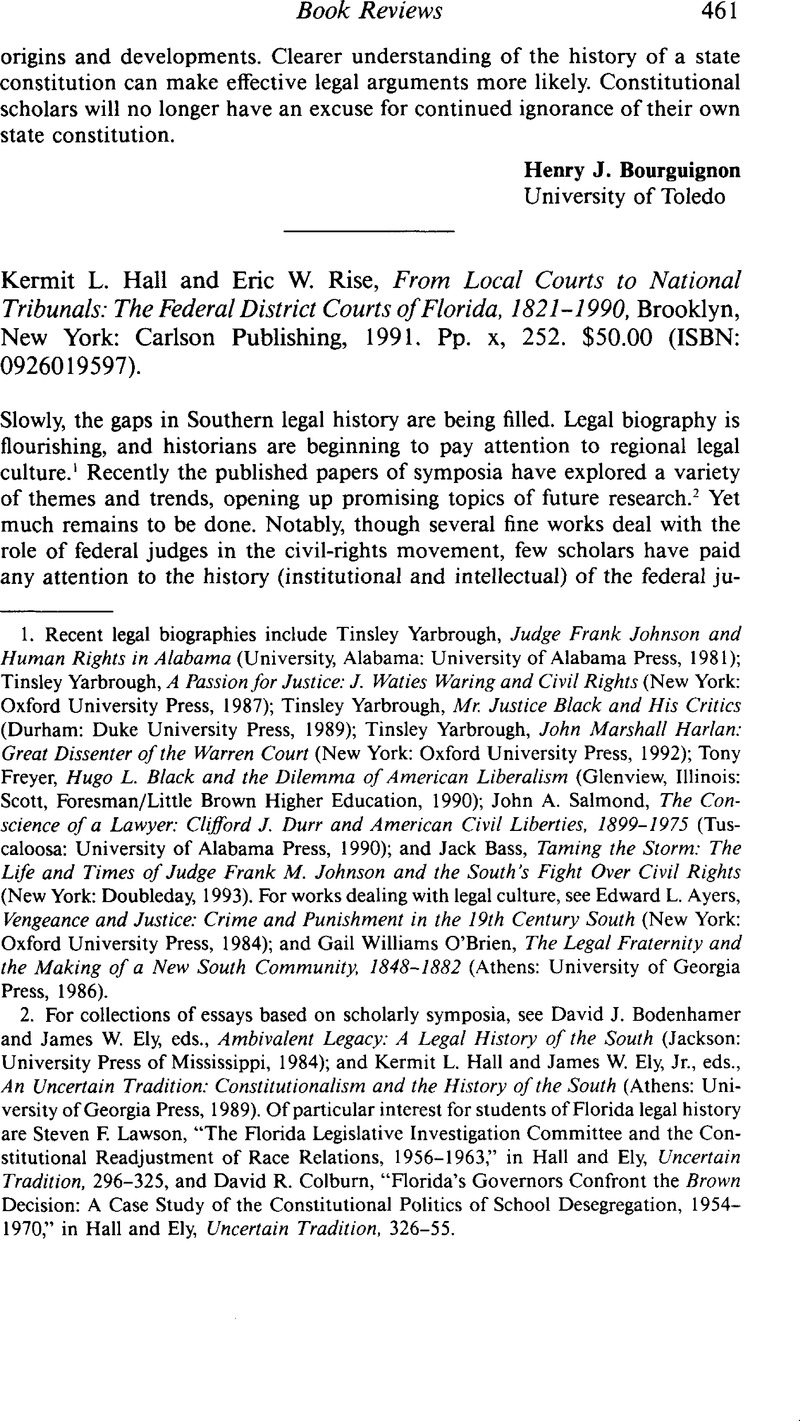No CrossRef data available.
Published online by Cambridge University Press: 28 October 2011

1. Recent legal biographies include Yarbrough, Tinsley, Judge Frank Johnson and Human Rights in Alabama (University, Alabama: University of Alabama Press, 1981)Google Scholar; Yarbrough, Tinsley, A Passion for Justice: J. Waties Waring and Civil Rights (New York: Oxford University Press, 1987)Google Scholar; Yarbrough, Tinsley, Mr. Justice Black and His Critics (Durham: Duke University Press, 1989)Google Scholar; Yarbrough, Tinsley, John Marshall Harlan: Great Dissenter of the Warren Court (New York: Oxford University Press, 1992)Google Scholar; Freyer, Tony, Hugo L. Black and the Dilemma of American Liberalism (Glenview, Illinois: Scott, Foresman/Little Brown Higher Education, 1990)Google Scholar; Salmond, John A., The Conscience of a Lawyer: Clifford J. Durr and American Civil Liberties, 1899–1975 (Tuscaloosa: University of Alabama Press, 1990)Google Scholar; and Bass, Jack, Taming the Storm: The Life and Times of Judge Frank M. Johnson and the South's Fight Over Civil Rights (New York: Doubleday, 1993).Google Scholar For works dealing with legal culture, see Ayers, Edward L., Vengeance and Justice: Crime and Punishment in the 19th Century South (New York: Oxford University Press, 1984)Google Scholar; and O'Brien, Gail Williams, The Legal Fraternity and the Making of a New South Community, 1848–1882 (Athens: University of Georgia Press, 1986).Google Scholar
2. For collections of essays based on scholarly symposia, see Bodenhamer, David J. and Ely, James W., eds., Ambivalent Legacy: A Legal History of the South (Jackson: University Press of Mississippi, 1984)Google Scholar; and Hall, Kermit L. and Ely, James W. Jr, eds., An Uncertain Tradition: Constitutionalism and the History of the South (Athens: University of Georgia Press, 1989).Google Scholar Of particular interest for students of Florida legal history are Steven F. Lawson, “The Florida Legislative Investigation Committee and the Constitutional Readjustment of Race Relations, 1956–1963,” in Hall and Ely, Uncertain Tradition, 296–325, and David R. Colburn, “Florida's Governors Confront the Brown Decision: A Case Study of the Constitutional Politics of School Desegregation, 1954–1970,” in Hall and Ely, Uncertain Tradition, 326–55.
3. For a study of the judicial role in the Civil Rights movement see Bass, Jack, Unlikely Heroes: The Dramatic Story of the Southern Judges of the Fifth Circuit Who Translated the Supreme Court's Brown Decision into a Revolution for Equality (New York: Simon and Schuster, 1981).Google Scholar